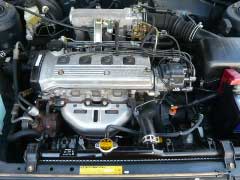Determining the Cause of Engine Trouble - Vol.138
Major engine trouble can be the kiss of death for certain vehicles. It can cost thousands of dollars to rebuild an engine or to buy a new one. And for an owner of an older vehicle, that cost can seem unreasonable considering the value of the vehicle. But before you panic or write-off your car, it is important to determine the cause of your engine trouble. You may find it is relatively easy and inexpensive to fix.

Signs of Engine Trouble
Generally, you will not be the beneficiary of the "Check Engine" light which is a clear indication there is a problem with your engine. Instead, you will notice weird noises or smells emanating from the direction of your engine. You might experience stalling or surging of your vehicle. Once you have ruled out everything else as a likely culprit, you can be confident you have engine trouble. Even if your "Check Engine" lights does come in, do not assume you actually have something wrong with your engine. It is not unusual for that light to come on in newer vehicles if the gas cap is not screwed on tight enough. To determine why the light came on or if you have another sign of engine trouble, you will want to have your car scanned. This is accomplished by inserting a diagnostic tool into your car's computer system that reads the status of various operating functions and provides feedback.
Common Causes of Engine Problems
The most common causes of engine trouble are related to bad spark plugs or a dirty fuel filter. Clogged fuel lines are another culprit. Problems with the car's computer system can also result in engine trouble. In short, most engine problems can be categorized as either a lack of spark to get the engine working, insufficient or bad fuel that prevents the spark from occurring, or not enough compression which is needed to generate the fuel mix needed to spark. There are additional problems that can prevent your car engine from working. You may have a dead battery or not enough motor oil. You might have a faulty cooling system that is causing your engine to overheat. It is also possible there is a problem with the actual ignition system that is preventing your engine from turning over.
Fixing Engine Problems
Bad fuel mix happens when you run low on gas and the engine is getting too much air. You can fix this by making sure you keep enough gas in your car at all times. Be sure your fuel filters are clean and replaced as needed. Bad spark plugs can easily be replaced. However, the real problem may be the spark plug wires which can also be changed. If there is not enough compression, you may need to replace piston rings or an intake valve. It is also feasible the compression combustion cylinder has a hole and needs to be repaired. Always check your oil levels. You can test your car battery to see if that is the problem. Replacing your battery is a cheaper alternative to major engine work.
Final Thoughts
It can be nerve wracking to hear a strange noise or smell an unusual odor coming from under the hood of your car. But that does not mean you should ignore it. It will be less expensive to get the problem identified and fixed today than it will be to continue to drive your car until your engine dies. You may end up damaging other components of your car in the process. Preventative maintenance is always less expensive than engine repairs. You can regularly change oil and replace belts to keep your engine performing at its best.